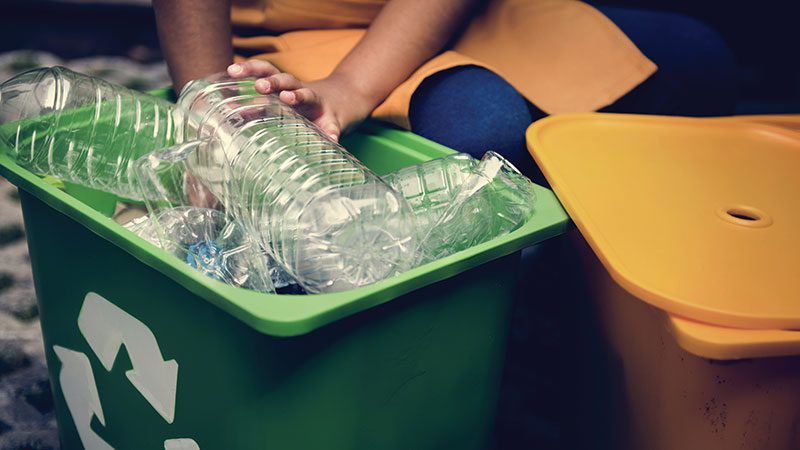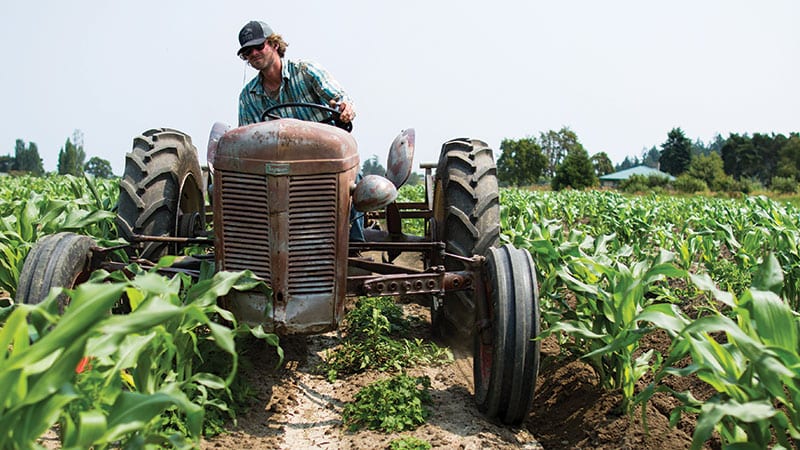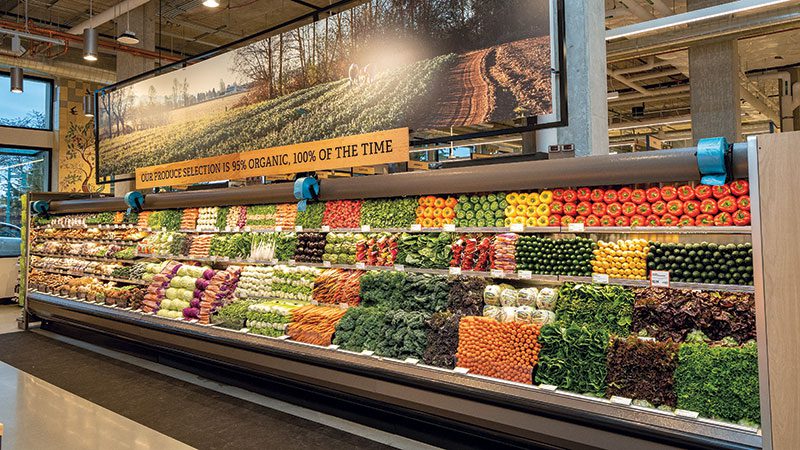Sustainability Report: Results Of PCC’s Five-Year Goals
This article was originally published in June 2023

PCC has added thousands more local and organic products to its shelves, significantly decreased the amount of energy used per square foot in its buildings, and achieved “zero-waste” status at 11 of its 16 stores.
Those are some of the final results of the ambitious five-year social and environmental goals the co-op set in 2017. Starting this year, we are dividing the Co-op Purposes Report into two distinct pieces. Part One focuses exclusively on PCC’s impact in 2022: community, standards and the environment. Part Two includes financials published in May detailing PCC’s 2022 business performance, updates about the membership program, and insights into our compensation philosophy and structure. They’re fully detailed in the 2022 Co-op Purposes Report, online here.
When the goals were set, “it was inspiring and thrilling to take a monumental step toward our vision of inspiring and advancing the health and wellbeing of the planet, people and their communities,” the report said. “Equally so, the fear of not reaching these planet- and society-critical goals, of knowing both the internal and external shifts in “business as usual” it would take to achieve all 11 goals, weighed heavily upon us.
“Five years later, there is only excitement (with a definite sense of urgency for the work left to do to make meaningful change), and no more fear.”
A global pandemic, supply chain issues and other issues caused unexpected disruptions in some goals. Still, the co-op fully succeeded in seven out of the 11, with some progress in others.
Among the lessons learned in the four goals that we did not achieve, according to the report:
“We learned that elimination of petroleum-based plastic packaging in the deli requires not only a commitment on our part to launch the program across all stores (three years ahead of schedule), but a strong global supply chain of compostable packaging products; a critical component that nearly dried up during the pandemic and is still recovering. We learned that attention to refrigerant leaks and introducing new carbon dioxide refrigeration systems in four of our six new stores made headway toward reducing refrigeration emissions on a metric ton per square foot basis. However, we need to do more to reduce overall emissions by the desired rate of 50%. Lastly, we learned that leasing property (rather than owning it) is an often-insurmountable hurdle to installing electric vehicle charging stations without collaboration from landlords and electric charging suppliers.

“We will build on this work to set new baselines and goals, integrate new knowledge and science, and expand our awareness of the challenges facing people and our planet.”
Successes included:
- Added more than 2,100 organic products to our grocery aisles (third-party certified products proven to be better for people and the planet)
- Reduced our per-square-foot energy consumption by 20% (less energy means less greenhouse gas emissions)
- Achieved carbon negative store operations through energy reductions and supporting carbon offset projects (reduced greenhouse gas emissions means reduced impacts from climate change)
- Established our first supplier diversity and inclusion program (intentional steps to alter the systemic discrimination faced by too many of our communities)
- Reduced water use intensity by 31% (conserving this precious resource is critical to building climate resiliency)
- Purchased renewable energy credits for our stores (supporting alternative energy sources is an important solution in the fight against climate change)
- Donated more than 6 million meals to our communities (improving access to organic food for individuals and families struggling with food insecurity)
Other data from the Purposes Report highlights sustainability work throughout the co-op last year. In just a few examples, the number of local products on our shelves increased by 16% from 2021, PCC achieved carbon negative store operations by reducing overall emissions and purchasing carbon offsets, and the co-op diverted 89% of our waste from landfills into composting, biodigestion, recycling and food donations.

